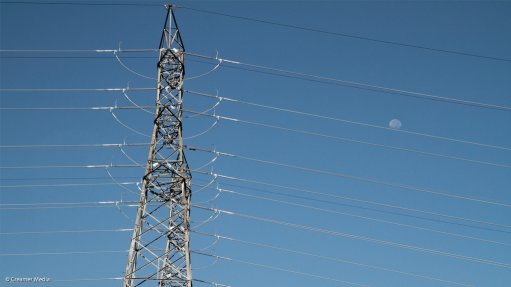VT course to meet industry requirements


COURSE CONTENT Level 1 of the Visual Testing (VT) course focuses on general theory and application, while Level 2 enhances basic VT theory
Nonprofit technical organisation the Southern African Institute of Welding’s (SAIW’s) nondestructive testing (NDT) department introduced an independent Visual Testing (VT) course as part of its training offering last month.
VT was previously incorporated into SAIW’s welding inspectors course only as a module and not as a standalone NDT course.
“With the increasing demand from the local engineering industry, which requires an independent VT NDT qualification, SAIW decided to introduce this module as a separate training course for testing,” SAIW NDT manager Harold Jansen says.
This current industry need is based on the EN 15085 and ISO 3834 requirements, which define the comprehensive quality requirements for fusion welding of metallic materials in workshops and in the field. These standards are currently required and applied in manufacturing and assembly in the rail sector.
The VT course comprises four days of training, with a fifth day entailing the qualification examination. While Level 1 of the VT course focuses on general theory and application, Jansen notes that Level 2 enhances basic VT theory. Additionally, the VT course will focus on specific code requirements related to visual testing and also include practical aspects such as the inspection of casting forging and welds.
Jansen believes that the potential for growth in NDT training and certification exists in the field of VT, noting that SAIW is due to present VT courses for a local petrochemical major in August and September, with another two potential courses for a company in Cape Town later this year.
He expects that the VT course will be in significant demand for the first year, from not only the power generation and petrochemical sectors but also the transport sector.
Jansen believes that this demand will be driven by freight logistics group Transnet’s procurement of 1 064 locomotives, collectively valued at R50-billion, as well as the Passenger Rail Agency of South Africa (PRASA) and the Department of Transport’s R123-billion investment in a rail rolling-stock fleet-renewal programme.
“Future VT and NDT demand should stem from the nuclear industry and proposed nuclear power new builds,” he adds.
Meanwhile, Jansen believes that the SAIW NDT should incorporate and facilitate additional NDT courses, as the occupancy rate to date for some of its courses scheduled for the rest of the year is up to 92%.
Factors currently driving demand for the general NDT courses are linked to demand for NDT personnel for State-owned power utility Eskom’s power stations maintenance programme, including the new builds Medupi and Kusile, as well as the Ingula pumped-storage scheme, while petrochemical major Sasol also requires NDT during its yearly shutdowns.
“Maintaining plant productivity and ensuring component reliability are the main purposes of NDT, which would support the economy in the long term,” Jansen stresses.
Therefore, SAIW focuses on ‘Pre and In Service’ inspection training, providing a sufficient professional NDT qualification to ensure that component testing and subsequent maintenance in industry can be executed accurately and correctly, he says.
Jansen emphasises that SAIW has increased its NDT market exposure extensively, having increased its number of NDT trainees by 52% in 2014, compared with the average number of initial student of the previous three years.
The SAIW, having received bookings for 886 trainees for its NDT courses to date for this year, aims to have more than 1 000 trainees enrolled for its NDT courses by September – provided there are sufficient venues at which and sufficient time to conduct the training, he concludes.
Article Enquiry
Email Article
Save Article
Feedback
To advertise email advertising@creamermedia.co.za or click here
Press Office
Announcements
What's On
Subscribe to improve your user experience...
Option 1 (equivalent of R125 a month):
Receive a weekly copy of Creamer Media's Engineering News & Mining Weekly magazine
(print copy for those in South Africa and e-magazine for those outside of South Africa)
Receive daily email newsletters
Access to full search results
Access archive of magazine back copies
Access to Projects in Progress
Access to ONE Research Report of your choice in PDF format
Option 2 (equivalent of R375 a month):
All benefits from Option 1
PLUS
Access to Creamer Media's Research Channel Africa for ALL Research Reports, in PDF format, on various industrial and mining sectors
including Electricity; Water; Energy Transition; Hydrogen; Roads, Rail and Ports; Coal; Gold; Platinum; Battery Metals; etc.
Already a subscriber?
Forgotten your password?
Receive weekly copy of Creamer Media's Engineering News & Mining Weekly magazine (print copy for those in South Africa and e-magazine for those outside of South Africa)
➕
Recieve daily email newsletters
➕
Access to full search results
➕
Access archive of magazine back copies
➕
Access to Projects in Progress
➕
Access to ONE Research Report of your choice in PDF format
RESEARCH CHANNEL AFRICA
R4500 (equivalent of R375 a month)
SUBSCRIBEAll benefits from Option 1
➕
Access to Creamer Media's Research Channel Africa for ALL Research Reports on various industrial and mining sectors, in PDF format, including on:
Electricity
➕
Water
➕
Energy Transition
➕
Hydrogen
➕
Roads, Rail and Ports
➕
Coal
➕
Gold
➕
Platinum
➕
Battery Metals
➕
etc.
Receive all benefits from Option 1 or Option 2 delivered to numerous people at your company
➕
Multiple User names and Passwords for simultaneous log-ins
➕
Intranet integration access to all in your organisation


















